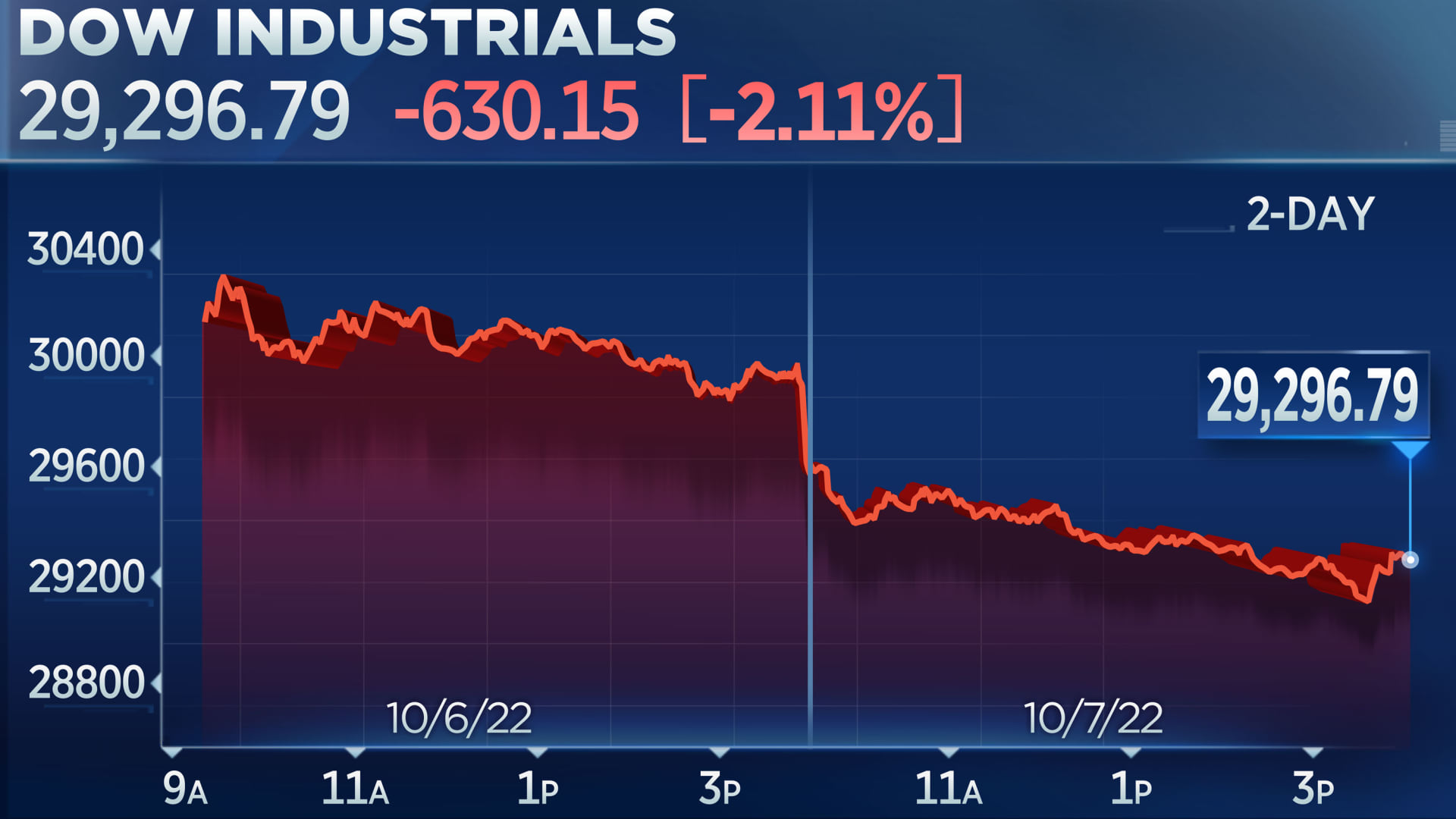Dow drops 600 points, Nasdaq closes 3% lower as rates pop after September jobs report

Stocks fell Friday as traders evaluated September’s jobs report, which showed the unemployment rate continuing to decline and sparked an increase in interest rates.
The Dow Jones Industrial Average fell 630.15 points, or 2.1%, to 29,296.79. The S&P 500 lost 2.8% to 3,639.66. The Nasdaq Composite slid 3.8% to 10,652.41, which is less than 1% above its low of the year.
Friday’s losses trimmed the gains for what started out as a big comeback week for stocks. The major averages still ended the week higher but gave back most of the gains from the rally that kicked it off. The Dow rose 2% for the week, while the S&P added 1.5%. The Nasdaq eked out a 0.7% gain.
The U.S. economy added 263,000 jobs in September, slightly below a Dow Jones estimate of 275,000, the government said Friday. However, the unemployment rate came in at 3.5%, down from the 3.7% in the previous month in a sign that the jobs picture continues to strengthen even as the Federal Reserve tries to slow the economy with rate hikes to stem inflation.
“While the data was about as expected, the drop in the unemployment rate is seemingly what the markets are obsessed with because of what it means for the Fed,” said Bleakley Financial chief investment officer Peter Boockvar. “When combined with the low level of initial jobless claims, the pace of firing’s remains muted and this of course gets the Fed all fired up about continuing with its aggressive rate hikes.”
The falling unemployment rate sparked a jump in rates, in turn weighing on stocks. The 2-year year Treasury yield rose 6 basis points to 4.316%. (1 basis point equals 0.01%.)
Advanced Micro Devices’ stock tumbled after the chipmaker warned its third-quarter revenue would be lower than anticipated. Levi Strauss shares slipped following a cut to the company’s guidance.
“The conclusion many we have spoken with have reached is that not only will the Fed not help markets, but in their dogged pursuit of price stability keep going until something breaks in the capital markets,” said Christopher Harvey, an equity analyst at Wells Fargo Securities. “What appears to be their increasingly singular focus — price stability — will likely help catalyze the dislocation.”









